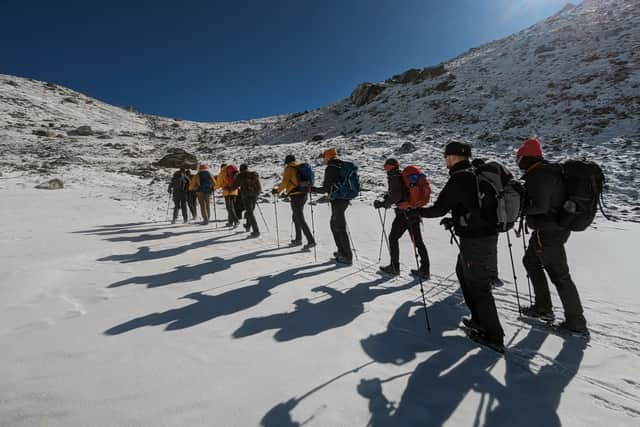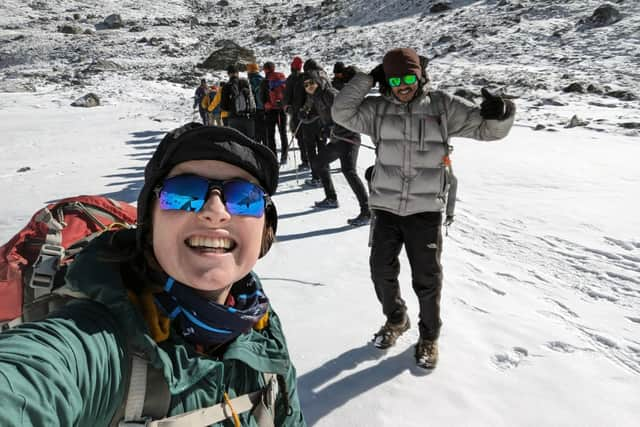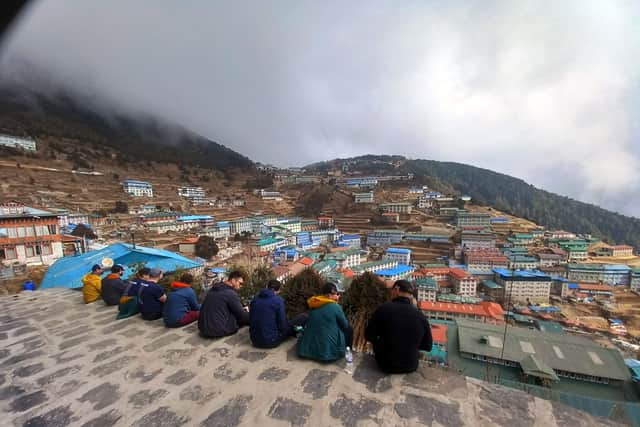Royal Navy: Portsmouth engineers conquer Himalayas mountain peaks as they trek to Mount Everest Base Camp
and live on Freeview channel 276
A 14-strong team from Portsmouth's 1710 Naval Air Squadron spent 15 days braving the bitterly cold conditions in the Asian mountain range. They were guided by two expert instructors on the "Three Passes Trek" - battling altitude sickness and temperatures which dropped to -26C. Team prepared by climbing Snowdonia in January.
Lieutenant Jenna Clark said: "Although weather conditions made it more difficult and temperatures were as low as -26 Celsius, there were almost no other trekkers around, so the team could fully appreciate the enormity and magnificence of the huge towering mountains of the Himalayas." The engineers slept in tea houses which offered incredibly basic facilities, with no running water or electricity.


Advertisement
Hide AdAdvertisement
Hide AdThe only heat source was from a stove fuelled by dried yak dung, which was only lit in the evening. Personnel - from able seaman to commander - conquered the Renjo La and Cho La passes, vast glaciers and fought their way through snowstorms before making a 2 hour hike to the Mount Everest base camp and back. The camp was at 17,600ft.




Difficult wintry conditions forced the team to skip the final pass of the trek, Kongma La, and head back down the valley. It was a sobering journey as they passed memorials for people who lost their lives climbing Mount Everest and other mountains in the region. Avionics specialist Air Engineering Technician Matthew Edwards said despite the exertions, the expedition was “pure joy”.
He added: "Every step felt like an adventure and I couldn’t get enough of it. The most challenging aspect was becoming ill the night before the first and most challenging pass. I had to push my body to the limit, running on very little energy and an empty stomach (due to being ill). I felt a huge sense of accomplishment once that day was over – it was the most mentally and physically challenging day of my life so far.”
Exped leader Lieutenant Olivia Critchley-Peddle said the Himalayan trek was the experience of a lifetime and her squadron benefitted hugely from the skills learned in the mountains. "There were multiple times and prolonged periods that our resilience was tested," she added. "To keep trekking day after day, setting off at 0500 on some days and in such low temperatures, the entire team deserve all the credit I can give them. Physical fitness and courage played major roles in the trek, but the resilience developed and the leadership shown at various points, pulling each other through and working together to get over the high passes was amazing.”
Comment Guidelines
National World encourages reader discussion on our stories. User feedback, insights and back-and-forth exchanges add a rich layer of context to reporting. Please review our Community Guidelines before commenting.